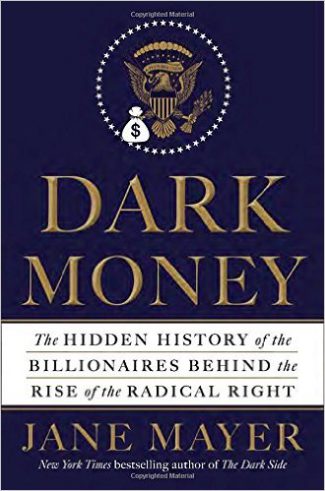~ Click here to view the full Freddie and Fannie Become Penny Stocks article.
Everybody knows that the boat is leaking
Everybody knows that the captain lied
Everybody got this broken feeling
Like their father or their dog just died
– Leonard Cohen
Dodge & Cox is one of the most respected mutual funds managers in the country.
As of March 31, 2008, Dodge & Cox’s filings with the U.S. Securities & Exchange Commission indicate that their combined funds held 12,058,212 shares of Fannie Mae. On that day, Fannie Mae’s stock closed at $26.32, for a total position value of $317.4MM. By August 8th, Dodge & Cox held 119,814,881 shares of Fannie Mae, or 12.2% of the outstanding shares. Closing that day at $9.05 a share, their total position was valued at $1.1BB.
Dodge & Cox Discloses 12.2% Stake in Fannie Mae (FNM)
Today, Fannie Mae’s stock closed at $0.43. Assuming Dodge & Cox has not disposed of the shares, they have lost over $1BB investing in Fannie Mae, most of it on shares purchased in the last six months. After Fannie Mae was moved into government conservatorship, Dodge and Cox issued the following statement:
Dodge & Cox: Commentary Regarding U.S. Government Takeover of Fannie Mae
Here is my interpretation of what happened.
Fannie Mae and Freddie Mac essentially had a monopoly position in securitizing mortgages originated in the U.S. In addition, they had special benefits by reason of their position as government sponsored enterprises. Finally, they had a line of credit at the US Treasury and implied access (now realized) to the U.S. credit, assuring broad, low cost access to capital globally.
Given those facts, it was reasonable for Dodge & Cox to assume that buying into Fannie Mae after it had dropped more than 50% from its year high of $68.60 was a good bet. The business model was one that would appear to be as good as the U.S. Treasury. The company had the market share, the product pricing power and the access to capital to manage its way through a serious housing recession, even depression.
Unless, however, deep within its portfolio and the mortgage system there was significant criminal fraud – mortgages issued fraudulently, collateral fraud resulting in non-existent or double counted mortgages, and complex derivatives piled on top of that fraud, meaning even more fraud.
Now if you and I were to stop for a cup of coffee at any truck stop in America and for some reason the truckers felt like speaking openly, they would know how bad the fraud was. They would not know the details – they would know the gist of it. As would people close to the situation in communities throughout the country.
For seven years, I as the former Assistant Secretary of Housing and former lead financial advisor to the Federal Housing Administration had spoken and appeared on the radio in the San Francisco Bay area where Dodge & Cox is based, describing systemic criminal fraud in the U.S. mortgage system. My website and writings, supported by extensive documentation, have been widely published and disseminated throughout the Internet.
Yet, somehow, what is obvious to anyone who drives around communities and can add up the numbers on the ground could not be heard or computed by Dodge & Cox. In theory, it is possible that someone put a gun to their head and they bought the shares because they had no choice. However, it is more likely that they simply could not fathom that the corruption and the criminality in the US mortgage system is as deep and serious as it is. Even if they were aware of what I was saying and writing, they could not fathom that what I was saying was true. How could it have gotten that bad without their knowing? If it were that bad, why were more people not saying something? If it were true, the criminality was deeply institutionalized. It was widespread and went to the very top.
When Fannie Mae was taken over by the U.S. government, Dodge & Cox was given a deeply shocking message. There was indeed a deeper rot in the system. Given Fannie Mae’s size and role, what is true for Fannie Mae is true for the whole financial system. Systemic criminality at Fannie Mae can only exist with the complicity of the U.S. Treasury, the Federal Reserve banks and the leading law firms, banks and investment banks.
This realization is the crack in the dam. It begins the shift of a paradigm. Suddenly those responsible for managing trillions of dollars in an economy propped up by a matrix of lies are faced with the urgency of managing a significant shift.
Assets are shifting out of activities which drain real wealth, such as complex financial assets, like derivatives layered on top of fraudulent mortgage pools dependent on mortgage payments from people with falling incomes. They are shifting into basic goods and services that create real wealth, like high speed railroads and solar panels that help lower expenses and make us more efficient, and promises to pay by organizations that have a history of honest collateral arrangements, sound fundamental economics and keeping their promises, or, alas, a powerful military.
Whatever the specifics of this week’s stock market meltdown, it is important to understand that it is just the beginning.
Previous sections of this 6-part post: (I) (II) (III) (IV) (V)




Ahh….smart person. You are doing the numbers. I do not know if we are tithing to organized crime, building private armies or space stations on Mars. Whatever we are doing with all this money, the official explanation does not add up.
And yes, I believe the collateral fraud at the GSE’s is likely to be STAGGERING.
Catherine,
If every mortgage in America went bad and the recovery was 50%, the loss would be about 6 trillion. The GSE’s portfolio represented 13% and what they sold to others was 40%. GSE’s loss would be about 750 billion… almost the amount of the initial amount asked for in the bailout. This is every mortgage in America… and subprime is only a smaller portion of that.
It seems two things at play here. Whenever the supply outnumbers the demand, the price goes down, but it has to reach some sort of price representing the collateral that is actually there. So if every 5th bond is real, the pricing at 20% would be accurate. That implies that the GSE’s sold multiples of the bonds. The idea that we are bailing out AIG to pay the CDS is insane. See Michael Lewis article “The End” .. All the policy decisions appear to have been made for the short interest, not the bond holders.
sounds like doo-doo dilligence to me on Dodge & Cox management’s part..
any litigation pending against dodge and cox management for this gross misstep exposing share holders to extreme losses from Fannie Mae government takeover??
The Button must be pushed Catherine. The debt pushed/forced on to the tax paying citizens is not payable.
Yes, the document trail gets colder with each bankruptcy and failure.
Good question. Could be odd. As Fannie as the larger of the two, could just be they focused on the dominant player.
I think (or know) you are right.
BTW, glad you “discovered” my favourite (Canadian) poet (scare quotes meaning you’ve probably known of him for a long while). I use those lyrics in many of my presentations.
There’s this seemingly naive longing for “we’ve bottomed this thing out, cleared out the bad apples .. now we can “go back to normal””.
Nuh-uh … this has been coming for along time and is, as you point out, deeply structural. The packages being prepared and touted now are just a masquerade, to help the scoundrels get away while the getting may still be good.
Is it not odd, though, that Dodge & Cox only took a large position with Fannie and not with Freddie?
Given the Public statements by the U.S. Treasury and OFHEO reaffirming ‘that both Fannie and Freddie were “adequately capitalized, holding capital well in excess of the OFHEO-directed requirement, which exceeds the statutory minimums.”’, etc., why isn’t Dodge & Cox, and many others, suing U.S. Treasury and OFHEO officials for gross negligence with regard to the truth (i.e., fraud)? Is it standard to roll over and act dead? Is this a reaction of “shock and awe”?
“This realization is the crack in the dam. It begins the shift of a paradigm. Suddenly those responsible for managing trillions of dollars in an economy propped up by a matrix of lies are faced with the urgency of managing a significant shift.”
This is a little vague. Are you saying, Catherine, that “those responsible for managing trillions” HAVE NO CHOICE BUT to shift their paradigms? If so, I wonder. Their track record is not good. After working for so long in an environment where looting is rewarded at the expense of productive and real wealth-creating activities, it is more likely that they will remain in denial and continue to use their creativity to come up with yet more ways to hide the truth (from themselves, perhaps as much as from everyone else). Hey! It’s worked so far!
You write, “Assets are shifting out of activities which drain real wealth… into basic goods and services that create real wealth”. If this is true, it is wonderful news. Can you point to some specific examples?